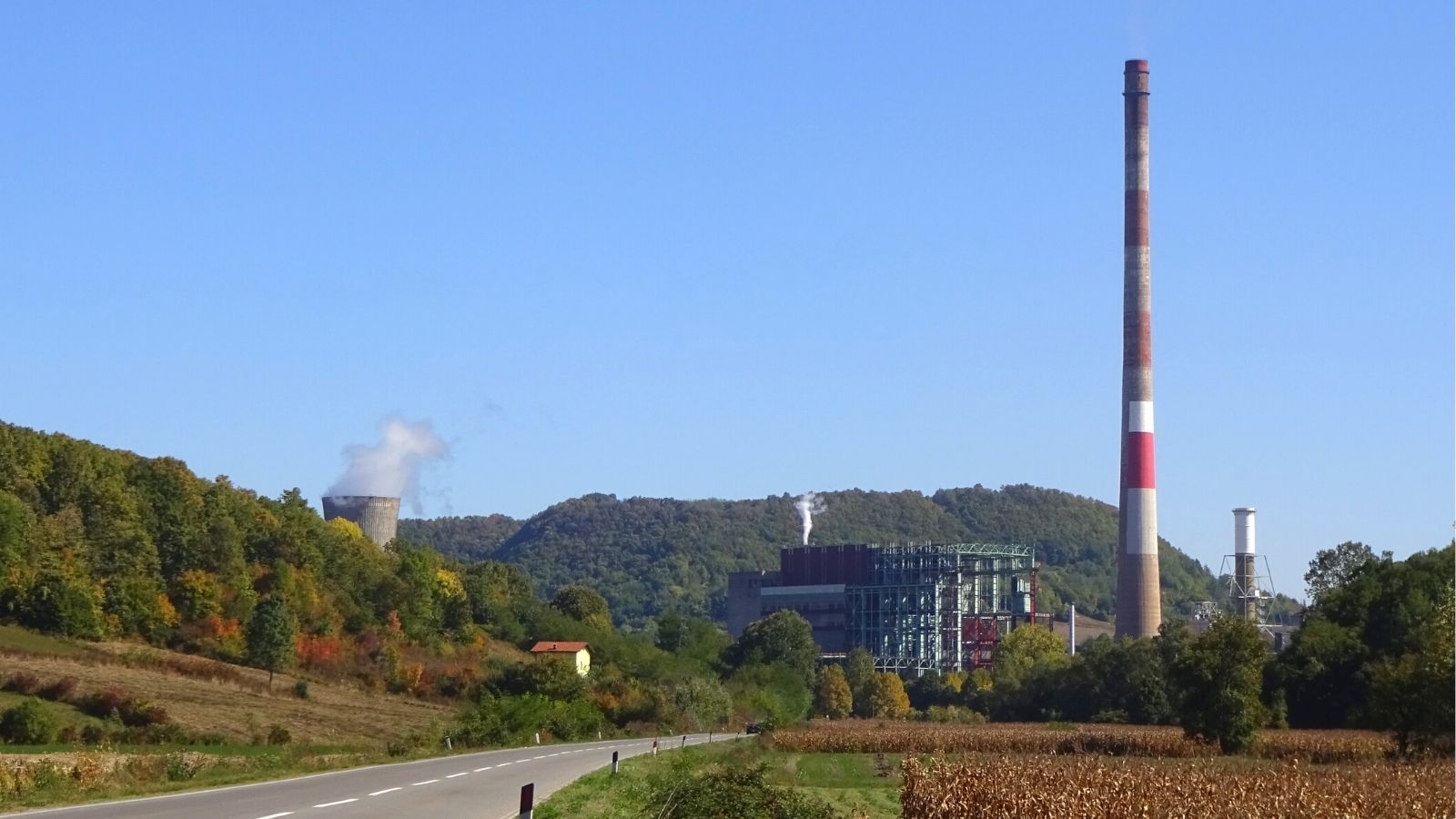Ugljevik power plant, Bosnia and Herzegovina
Commissioned in 1985, the 300 MW coal power plant in Ugljevik, Bosnia and Herzegovina, has become famous for emitting more sulphur dioxide than all of Germany’s coal power plants in 2019.

Stay informed
We closely follow international public finance and bring critical updates from the ground.
Background
To put things in perspective, for every GWh of electricity generated in 2019, Ugljevik emitted 50 tonnes of sulphur dioxide, that is 50 times more than EU’s worst polluter, Bełchatów in Poland, which emitted 1.1 tonnes of SO2/GWh.
The problem is not new, but the paradox is that a financing contract for installing desulphurisation (de-SOx) equipment at Ugljevik was signed more than 14 years ago, and the installation is still not functioning.
Financed by a loan from the Japan International Cooperation Agency (JICA) signed back in 2009, works on the de-SOx equipment started only in 2017 and test operations began in December 2019. It seemed likely that in 2020, SO2 emissions would be significantly lower, finally justifying the EUR 85 million investment.
However, in February 2020 technical problems were reported. The plant’s dust filters, overhauled more than three years ago by the Czech company Termochem at a cost of around EUR 10 million, were faulty, and their proper functioning is reported to be a precondition for desulphurisation. The plant operator spent an additional EUR 100,000 on a study that would show how to address the problem.
In 2021, RiTE Ugljevik, the power plant operator, sought ‘technical assistance’ to obtain the operating permit, adding an extra EUR 100,000 to the costs of this project. The contract was awarded to a company owned by the mayor of Zvornik, raising a host of questions on why the publicly-owned utility RiTE Ugljevik is not capable of obtaining an operating permit itself.
The plant finally obtained an operating permit for the desulphurisation equipment in November 2021. However, its 2022 sulphur dioxide emissions of 85,526 tonnes were barely any lower than those in 2021 (86,774 tonnes). Since 2018, when the Large Combustion Plants Directive entered force under the Energy Community Treaty, there has been no significant decrease in the plant’s emissions.
Out of all Bosnia and Herzegovina’s coal power plants, Ugljevik’s emissions caused the most days of asthmatic symptoms in children, with over 12,000 days in 2020. This is equal to 48 per cent of all such impacts from the country’s coal power plants which are included in the National Emissions Reduction Plan. Ugljevik is also responsible for the highest number of cases of bronchitis in children due to dust emissions, and of hospital admissions because of cardiovascular and respiratory symptoms, with 1,142 cases of the former and 469 of the latter in 2020.
Latest news
Serbia: EBRD Admitted Mistakes with EPS
Bankwatch in the media | 15 December, 2015CEKOR had a meeting with the EBRD Director for Serbia, Daniel Berg, at which the Report on EBRD Complaint Mechanism was considered. In accordance with the undertaken contractual obligations, the EPS should enhance its procedures not only for the case of Vreoci, to which the complaint referred, but also at all locations where it performs business operations.
Read more“EBRD priznao greške sa EPS-om”
Bankwatch in the media | 9 December, 2015Beograd — EBRD je priznao greške načinjene sa EPS-om u okviru projekata izvođenih u Vreocima i od preduzeća se očekuje da unapredi svoje procedure, saopštava CEKOR. Kako je navedeno na sastanku predstavnika CEKOR-a i direktora EBRD za Srbiju Danijela Berga, organizacija očekuje da EPS ubrza raseljavanje Vreoca, kao i da se angažuje i na društveno odgovornom raseljavanju domaćinstava obuhvaćenih zaštitnim zonama rudarenja u selima Junkovac, Radljevo, Baroševac, Zeoke u kolubarskom i sela Drmno u kostolačkom regionu.
Read moreAbschied von der Kohle
Bankwatch in the media | 24 November, 2015Ein globales Netzwerk hat dem Klimawandel den Kampf angesagt und will Investoren zwingen, Kohle-, Öl- und Gaskonzernen das Kapital zu entziehen. [VIDEO]
Read moreRelated publications
How to advance a just transition in the Western Balkans: Recommendations for the EU and national institutions
Briefing | 27 September, 2024 | Download PDFThis briefing takes stock of the current situation with the decarbonisation of the Western Balkans’s economy and summarises the progress on just transition in each country.
Comply or Close 2024: six years of deadly legal breaches by Western Balkan coal plants
Report | 17 September, 2024 | Download PDFThe end of 2023 marked six years since the deadline passed for power plants in the Western Balkans to meet new air pollution standards. Yet the deadly air pollution from the region’s mostly antiquated coal power plants has hardly decreased at all since 2018.
From quantity to quality: how to improve the infrastructure project selection process under the Western Balkans Investment Framework
Report | 29 August, 2024 | Download PDFThe Western Balkans Investment Framework provides finance and technical assistance for investments, particularly in infrastructure, energy efficiency and private sector development.
